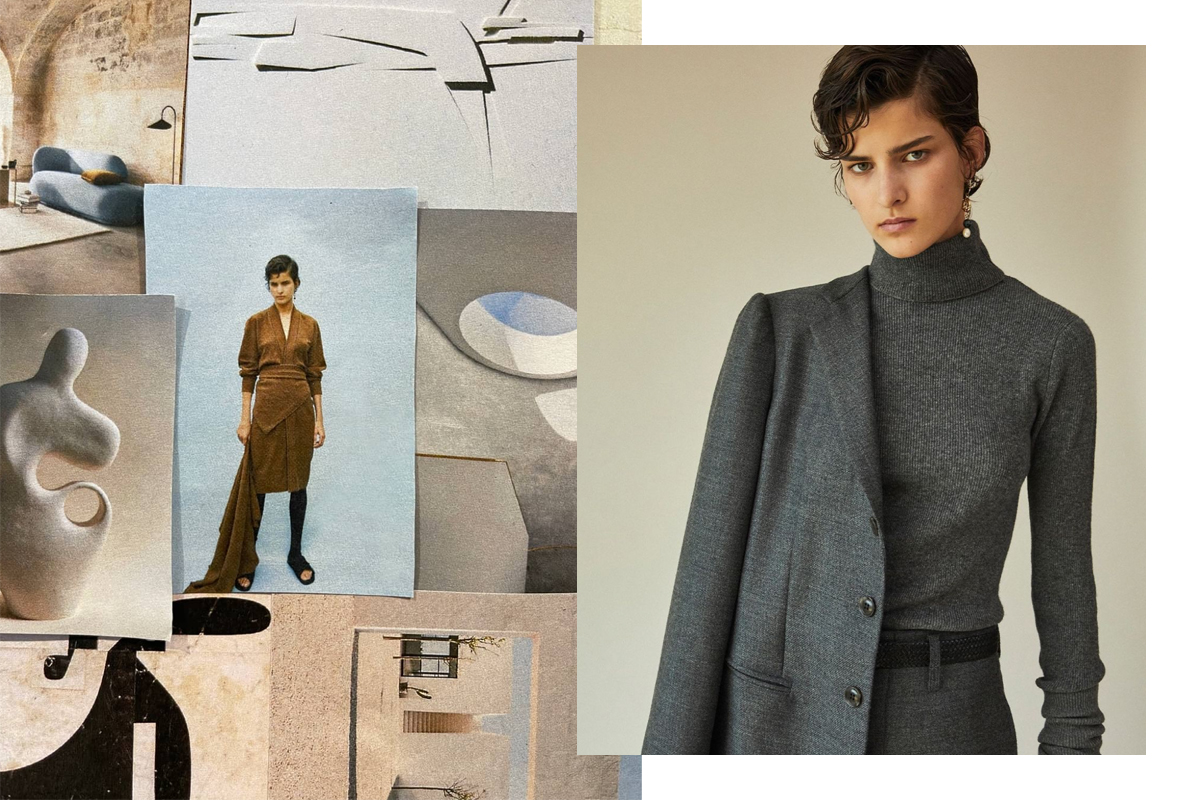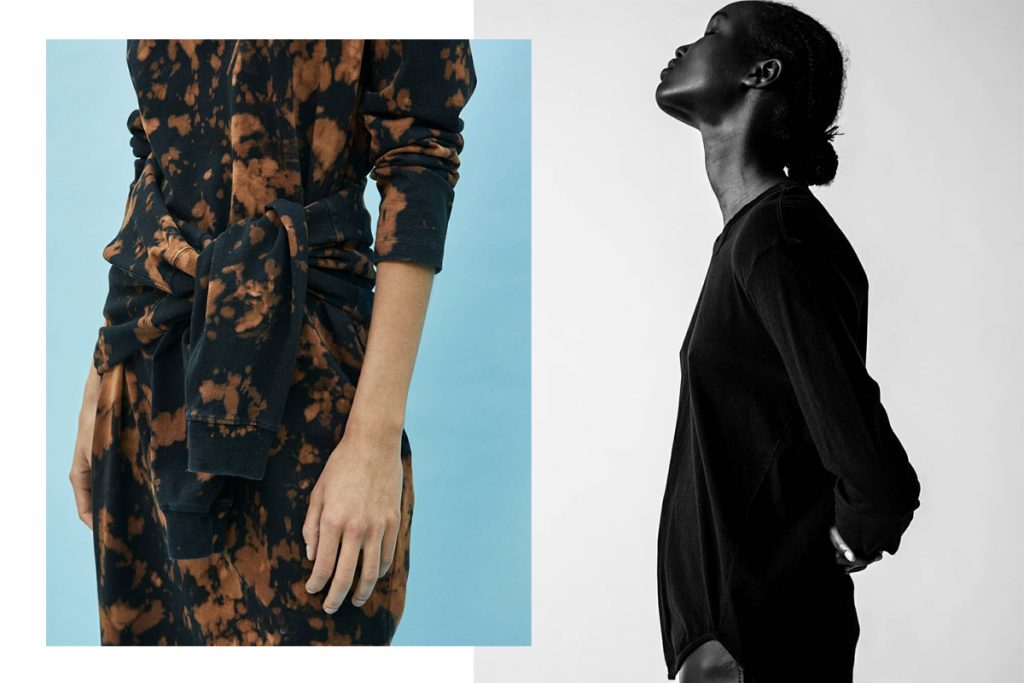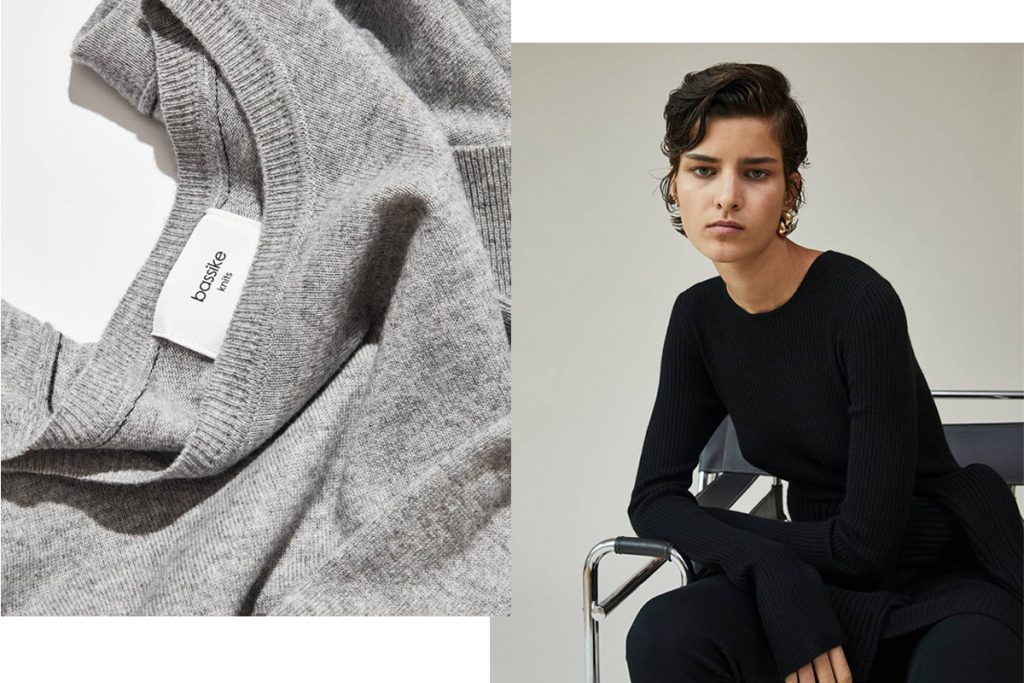
It's hard to talk about the future of fashion without talking about sustainability. If there will be a future for the fashion industry at all, it needs to be a sustainable one.
As we approach the start of Australian Fashion week for 2021, the major fashion event for Australia since the onset of the coronavirus, we are seeing the dawning of a new age. The new vision for Australian Fashion Week with Afterpay as the headline sponsor is one that celebrates democracy and a better future; and one designer that is leading the charge is undoubtedly Bassike.
This year at AAFW 2021, Bassike is hosting a carbon-neutral show, a first for an event of this nature in Australia. It's taken months of planning, but it's an important step for the designer to take. One that aligns with the mission to be as sustainable as possible. Ahead of the designer's show at AAFW, we spoke with Mary Lou Ryan, co-founder and director of supply chain & sustainability for Bassike. Below, she tells us all about Bassike's evolving commitment to sustainability and her hopes for the future of fashion.
Bassike is a brand that we've always admired for its commitment to sustainability. What does sustainability mean to Bassike?
When we started in 2006, sustainability for us was really about using organic fabric. We kind of built the business on a couple of principles. And it was really about ethical business and sustainable manufacturing. It wasn't necessarily just about the fabrication in terms of our choice of using organic, it was also about building a business model that was actually sustainable, and that the whole supply chain was supported. And also that, there was a true cost element to it, which actually allowed us to actually develop and grow our businesses alongside our manufacturing partners and our fabric partners. We really want to support our local industry.
How has the brand's commitment to sustainability evolved since the beginning?
We started using organic cotton and then over sort of the course of time, I think there's been probably more information that's been shared really around what the impact of the fashion industry. We have looked at several elements, for example your yarn choice. What kind of yarn are you buying? Are you buying organical or conventional cotton? Is it certified? Is it not certified? I think from a sustainability perspective, we've certainly looked at the complete supply chain and making sure from the choices everywhere along the way from yarn choice to who's milling our fabric? To who's manufacturing our garments? Also looking at our freight and understanding from a logistics perspective, what's our contribution to greenhouse gas emissions? And what can we do there to support that? How can we reduce any emissions that were emitting?
This has become a holistic thing, where it used to just be about you know, ethical manufacturing and sustainable fabrics. Now, it taken into this very holistic approach where we look at sort of all elements of our business from a sustainability perspective. For example, we've now offset all that ecommerce packages with GreenFleet which supports biodiversity and replanting trees here in Australia.
It's about how can we make the most responsible choice here and does it align with our sustainability initiatives.
Why is being responsibly-made something that is so important to Bassike?
As a business, you really to understand the choices that you're making. And can you make a better choice at that time.
Look, it does take a lot more work, but also it feels good to have purpose in your business. To come to work every day, and to have purpose is something that is bigger than just just creating a beautiful product. If we can actually talk to it and talk to how we're making things and why we're making things and why we do the things that we do, I think it just feels good.
I think since coming out of COVID, people are certainly asking more questions. They want to know where their garments are being made, they want to make sure that we're not damaging the planet. My role coming in to COVID was to really pull apart the business apart and show that you can have a really strong business, and you can do the right thing. There's a lot of fashion brands, across the board that aren't doing the right thing, and I don't think that we necessarily have to behave that way.

We heard that the Fashion Week show is set to be a carbon neutral one. How is that working?
We've been working with a consultant on our business for the last six to eight months. And it's just been such a great opportunity for us to really learn a lot about that space as well. Through that conversation, we were coming up with what can we do? And how can we make this the most responsible show? But also, we're a designer brand. So we want to make sure that we can actually still be able to present our brand in a designer way, but what can we do that's actually going to really support where we're heading. It's very exciting for the brand. Hopefully, people will start to follow suit and think about, you know, what's going to happen with their waste management program, and all of that kind of stuff.
As you can imagine, the show is forever changing. So every day and I'm like, we've got this happening. So we've kind of built like a framework around what we want the show to look like. We looked at the venues, we looked at electricity, we've looked at where people are coming from, we've looked at what the waste program is going to look like. We want to have no plastic, we'll have a plastic-free event. We've also looked at all the things from a catering perspective, how do we manage catering? How are we managing your recycling in the landfill program?
We worked backwards, so we put together that program, and then we kind of work out sort of what our carbon footprint is of that show. And then we we start to offset. First, we look at ways of reduction, and then we also look to offset what we can't reduce. I think it just really talks to our brand and what we stand for.
How do you feel about the new vision for Fashion Week Australia with Afterpay? Are you excited to invite consumers into the fold?
Anything to do with consumer is, is fantastic. We talk a lot about our customers in our business. And, you know, we create product and a brand for our customers, They are such an important part of what we do. And I think for them to be able to come into this space, and actually look at how we put collections together and look at the brand, I think is such a great way to communicate, and they're going to get so much out of it.
Why did Bassike make the decision to manufacture locally?
When we started the brand, the industry was really moving offshore, and the local industry was certainly really in decline. I said, we need to do something to really, to support what's happening here. So, when we started Bassike, one of the important things that we spoke about was really three pillars of design, their ethical manufacturing, and sustainability. And one of those things was really about supporting our local industry.
From a product perspective, what we've always loved about producing locally is this partnership that we have with our garment makers. We've worked with some of them for 15 years, and we've really developed and grown their businesses alongside our business and it's a great story. One of our makers, when he started he had five machinists, and now he's got 30 machines. He's got three factories. We've been able to work with him and develop his business and grow with that. I sometimes wonder what would have happened to the industry if we haven't been so committed to supporting local industry.
But I think at the end of the day, when we see our product that just feels very unique to Bassike. You just feel more connected to it. The fact we've got someone in the factory every day. You know, we've got some key manufacturing partners and someone from Bassike there every day. We have a deep connection to our product, because we're so close to it. I feel like you can feel that when it delivers onto the floor and the customer picks it up. Like, it's not this this cookie cutter product that's come out of offshore. There's so many hands that have touched our product along the way.
What do you hope the future of Bassike looks like?
I hope that we can continue to be in that leadership position where we talk about responsible business. That we can continue to, you know, inspire, and, you know, create a business that we can continue to support local industry. And I feel like there's such a, there's an opportunity now, and I think, with the agency, and the funding that they've been given has just sort of shone a lot, a little bit on the industry, which I think is fantastic. You know, I just, you know, we've always sort of organically grown our business. And I feel that, you know, if we can just continue on that path. And if we can continue to design and produce garments that support, you know, sustainability, where we can show that it's possible and reduce our carbon footprint, then, you know, I think, for us, that's sort of where we would like to take the brand and actually have a real impact and be the real sort of force for change in terms of how people actually build a fashion brand.
What do you hope that the future of the whole industry will look like?
Look, I think it has to be both ethical and sustainable. I think we have to be moving to more sustainable manufacturing principles. You know, we have to be moving away from toxic waste, and we have to be moving to more renewable factories. If we want to continue to develop as an industry, we have to look for more sustainable ways. That goes right across from waste management of toxic waste management to being carbon neutral and can they use renewable energy in their facilities? I think that's a really important part of how looking at doing things in a more sustainable way that supports our planet.
And then, I think innovation is going to be a really interesting one. Great change creates a lot of innovation. And you can kind of see, there's certainly a lot of innovation that's happening from a fabric perspective, at the moment. There's certainly a move away from fabrics that are just not sustainable and have a huge carbon footprint. There's lots of innovation that's happening in that space at the moment. There's lots of interesting things around end of use of product and raw materials, I think that that's going to be an interesting space where there's new mills that are taking like old cashmere garments and pulling the fibres apart and reknitting new garments. So therefore, there's a reduction of farming of cashmere, so there's less carbon footprint. There's going to be a lot of innovation around landfill and what happens to end of these products and you can sort of see we see for example with the Real Real and Vestiaire. They've got this second hand thing going on and marketplace. Then you've got Queen of Raw, which is that new marketplace for accessible materials where people can buy fabric and it doesn't have to be going through the whole farming process again. So I think there's going to be a real learning and innovation and around landfill. I'm kind of excited about that part.
Do you have any advice for consumers who are looking to shop more ethically and more sustainably?
It's such a personal decision, isn't it? Like, where you where you sit with it all? It all depends on your own personal choice. And I think you just need to find where you sit with it.
If you are vegan, and leather doesn't work for you, well, then you need to need to seek out brands that, you know, will do vegan leather, non leather products. Or, if you're a consumer that has often bought sort of fast fashion in the past, and not necessarily has been conscious about where things are made - communicating that you know, a product that costs cost X amount, and you think "oh, well, that's so cheap," - somewhere along the supply chain, someone probably hasn't been treated ethically, or hasn't been paid properly.
I think people are starting to become certainly more educated. And I think especially even in our space, you know, at our price point, there's an expectation around that. It's certainly an expectation around the choices that you know, where they came from, and why we why we make the choices that we do. I think people are asking more questions than they ever have.




